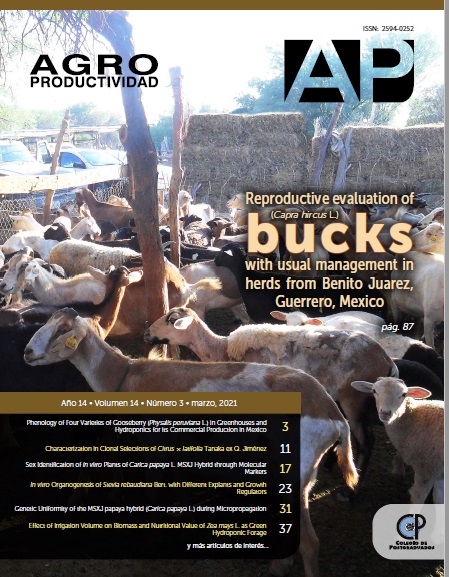Sustainability of Four Agroecosystems in the State of Veracruz, Mexico
##plugins.themes.bootstrap3.article.main##
Keywords
moringa, sustainable agriculture, sustainability indicators.
Resumen
Objective: To evaluate the sustainability of four agroecosystems in the state of
Veracruz, Mexico: sugarcane, maize grain, orange and moringa.
Design/Methodology/Approach: Producers that provided information about the
crops’ management were located. Semi-structured interviews were conducted to
identify critical points affecting sustainability, and the indicators were weighted using
the bottom-up criterion and the PSR model.
Results: The most sustainable crop was moringa, and the least sustainable was
maize for grain. Conventional crops are characterized by being monoculture
plantations and demanding large amounts of non-renewable external inputs that
undermine their sustainability. Lack of technical training for producers was identified
as a critical point.
Study Limitations/Implications: The results obtained are limited to the analysis of
four production systems and their environmental, social and economic dimensions.
Findings/Conclusions: Moringa is presented as an alternative crop with low
environmental impact that generates employment and strengthens social capital.

